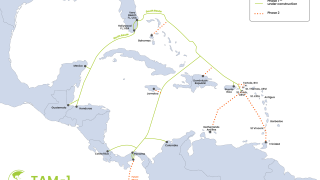|
|
Large reserves of oil and gas have helped transform the country into a free market economy, with growth in the energy sector in particular creating strong demand for telecoms and networking services.
Much of the ongoing development in Azerbaijan’s telecoms sector can be attributed to a number of joint ventures established more than a decade ago under the country’s Ministry of Communications and Information Technology (MCIT). By 2001, there were four joint ventures offering fixed-line services, two mobile operators and several internet service providers.
The country’s national telecoms service provider is government controlled AzTelekom, which initially had a monopoly on long distance and international calls, including leasing. In 2001, plans were put in place to privatise the company and a privatisation advisor was established in 2007. By 2008, however, the government had announced that privatisation had been postponed and would take place in a few years.
It is believed that privatisation will take place as a consequence of Azerbaijan gaining accession to the World Trade Organisation (WTO). The process for gaining membership began in 1997 but progress has been slow, with structural reforms and other steps required before it can be finalised. “Whilst Azerbaijan is keen to acquire WTO membership it will probably not happen for a few more years,” says Peter Evans, senior analyst for Asia at Buddecomm.
Some of the largest growth potential in Azerbaijan’s telecoms market is in the wireless broadband segment, according to Evans. Similarly to many developing nations, the demand for internet access is increasing rapidly and service providers are finding ways to bypass fixed-line infrastructure limitations to meet this demand.
As a result, prices of broadband wireless services and handsets are decreasing, encouraging consumer uptake. Mobile subscribers stood at approximately 8.7 million in March 2012, the bulk of which can be attributed to TeliaSonera and Turkcell-owned Azercell, which has an approximate 47.8% market share.
Spurred by the arrival of the Eurovision Song Contest in May, LTE services were launched early this year in the capital, Baku. Azerfon, which began commercial activities in 2007 under the Nar Mobile brand, saw the opportunity to provide high-speed broadband services to Eurovision tourists visiting the city, and deployed its first LTE base station in April. This was followed by a launch from Azercell in June, with initial coverage in the downtown area of Baku, including the Seaside National Park.
Fixed broadband, although significantly lower in penetration than wireless, has also shown impressive growth. Subscribers are estimated to have risen 400% from 2009 to 2010, from 100,000 to 500,000. A number of fibre projects are underway in Baku to provide high-speed connectivity to residents and businesses. There is also a 600km rural deployment taking place, led by AzTelekom in partnership with seven ISPs.
Despite the country’s vast oil and gas reserves, Azerbaijan’s telecoms market is facing an economic downturn. Since peaking at 34.5% in 2006, GDP growth has slowed dramatically due to the difficult global economic situation and a plateau in oil production, only reaching 0.1% in 2011.
As a result, the IMF has revised its GDP growth forecasts for the country from 2012 to 2014, with just 1.9% growth predicted in 2013. “Because Azerbaijan only has a small domestic market it needs to have access to the world market and with the faltering global economy, Azerbaijan is vulnerable to further setbacks,” says Evans.
This economic uncertainty, however, does not appear to have affected investment in IP transit. In December 2011, it was announced that the 6,000km Europe Persia Express Gateway (EPEG) project, linking Oman and Frankfurt, Germany, would run through Azerbaijan. Local operator Delta Telecom reportedly completed the Azerbaijan section in April in partnership with Alcatel-Lucent. The 3.2Tbps capacity cable is scheduled to launch in the coming months.
Azerbaijan’s alternative wholesale operator, Azertelecom, sees the potential for the country to become a regional hub for IP transit, due to its position between several key markets. By deploying terrestrial links across the Middle East, CIS and Europe, the carrier hopes to develop shorter routes to Hong Kong, Dubai and Frankfurt than existing subsea cables. It is anticipated that these shorter land routes will be particularly attractive to latency sensitive customers like financial institutions.
“I think the Caucasus is going to be one of the most interesting regions for IP transit in the next couple of years,” says Sietse Lettinga, director of international sales at Azertelecom. “If the routes develop the way I am expecting them to there will be some very prosperous years ahead.”
COUNTRY INFORMATION
9,493,600 Population (July 2011 est.) 52% Urban population (of total population, 2010) 86,600 km2 Land area $93.02 billion GDP (2011 est.) Baku Capital Manat Currency
MARKET DATA
|
|
|
|
|
|
|
|
|
|
|




